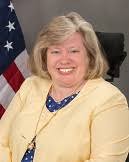When I go to stores to try on clothes, more often than not, the wheelchair accessible fitting room is being used for storage (illegally, by the way) and I cannot use it to see whether the items fit me properly.
Though it might take women without disabilities minutes to try on a flurry of clothing, it can be a lengthy and frustrating ordeal for people with disabilities to try on a single item.
To simplify life, many people with disabilities have to buy the clothes, take them home to try them on then return what doesn’t work – adding yet another difficult trip to the store.
All that extra effort could be avoided if I could use the fitting room or see a model in a wheelchair with that item of clothing. Sometimes a skirt that looks long enough on the hanger is too short once I get it on my body.
Because I am seated all day and my hips don’t function properly to help keep my knees together, it’s crucial for my dignity to make sure that the skirt is long enough to cover my knees. No one needs to see my panties, sexy and frilly though they may be.
To Owens and others who follow her line of thinking on this: Does the model in the wheelchair make more sense now? It’s not just about being inclusive, it’s about practicality and the ability to sell merchandise.
Sales make profits that pay salaries. Of the 333 million people in America, 61 million have some sort of disability. That’s about 20% of the population. They all spend money.
Making money to support oneself is a conservative value. Part of how I supported myself early in my life was by modeling. I earned college scholarship money by competing in pageants, which enabled me to graduate with a lower student loan debt.
All of this I did using crutches and making no effort to hide my disability, spina bifida. I didn’t go to a wheelchair full time until 2004, two years after I married the love of my life.
Owens’ comments, intentionally hurtful at worst or uneducated and thoughtless at best, were nothing more than clickbait. No one should reward this behavior. It makes all conservatives, especially conservative women, look bad. That is not what the freedom movement is about, and her comments about people with disabilities do not reflect conservative values.
Owens stated publicly that she wants to be educated on this topic. In an atmosphere of mutual respect, I would welcome the opportunity to meet with her to discuss living with a disability and the related policy issues.
I am the senior adviser for the Able Americans Project at the National Center for Public Policy Research. We fight daily for common sense, free market, limited government approaches to living with a disability.
As it says in Isaiah 1:18, “Come let us reason together.”
I’ll be waiting for her call.
Melissa Ortiz is the senior adviser for the Able Americans Project at the National Center for Public Policy Research. This was first published in USA Today.








